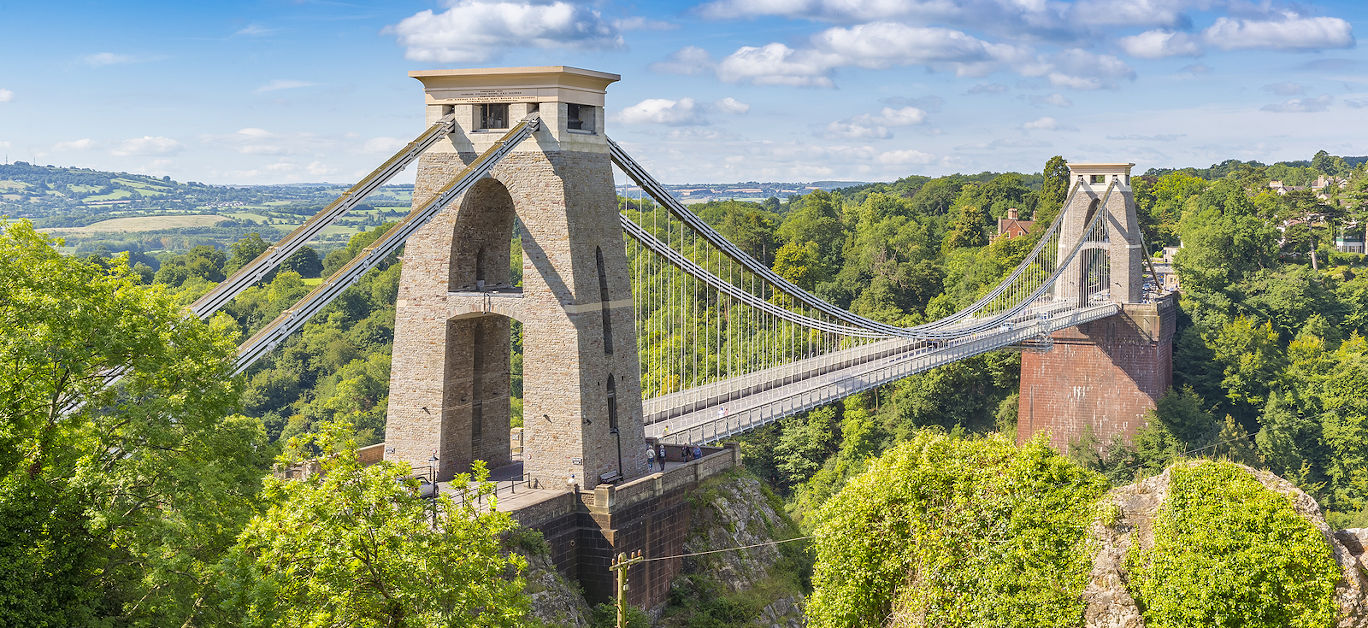Bristol is recognised as one of the UK’s most popular tourism destinations and in 2014 and 2017 it was declared, by the Sunday Times, to be the best British city in which to reside. Bristol offers visitors a fascinating glimpse into its intriguing heritage and rich maritime history, and the opportunity to view the engineering masterpieces of Isambard Kingdom Brunel.
Born in Portsmouth in 1806, Brunel was sent by his French engineer father, Sir Marc, to study in France. At sixteen years of age he worked with his father on the design of the ‘Gaz’ engine, which was powered by gas as an alternative to steam. Four years later he held the post of chief engineer on his father’s project to build the Thames Tunnel from Rotherhithe to Wapping, which was an outstanding success.
Today, Isambard Kingdom Brunel is still revered as one of the most skilful figures of the Industrial Revolution and one of Britain’s greatest civil, structural and marine engineers. He designed dockyards, steamships, bridges, viaducts, tunnels and locomotives and he was the celebrity of his day. As chief engineer of the Great Western Railway he surveyed the entire route from London to Bristol on horseback, and he developed the Great Western Steam Ship Company’s first propeller-driven iron-hulled ship to carry passengers from Bristol to North America.
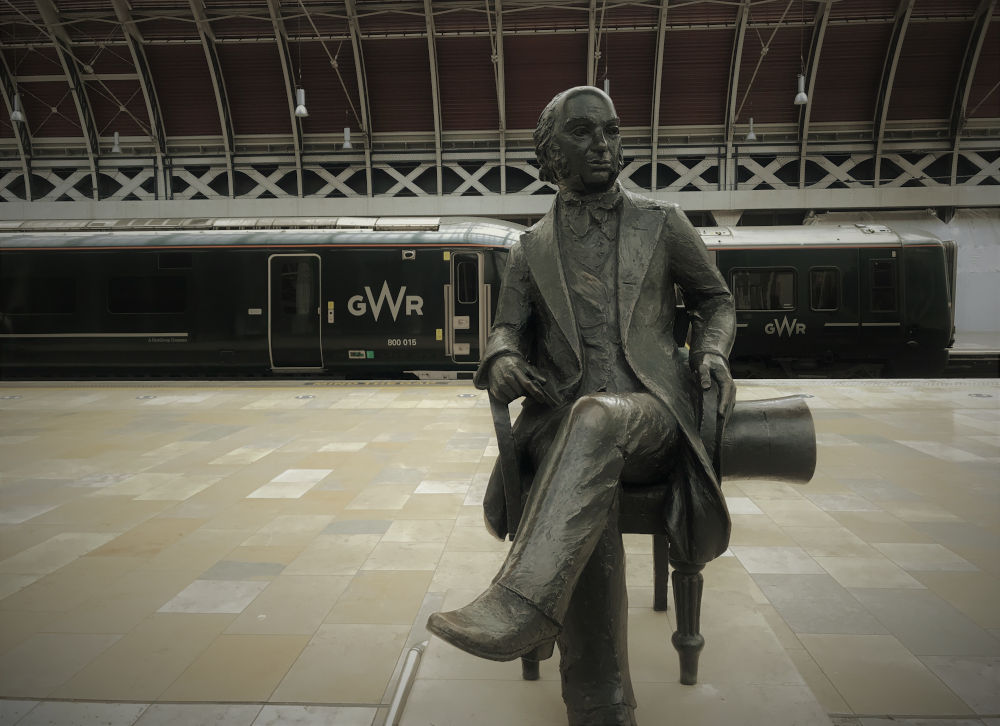
London Paddington station was designed by Brunel and opened in 1854 and I decided to hop on the Great Western Railway train direct to Bristol and find out more. Once on board, I settled back in my comfortable seat, whilst observing social distancing and wearing my face mask. Cocooned in the comfort and style of a first-class carriage and soothed by the clickety-clack of the track, I admired the charming and tranquil views of the English countryside from the windows and my journey was a real treat.
I disembarked at Bristol Temple Meads railway station; the oldest covered railway terminus in the world, which opened in 1878 and was also designed by Brunel. I made my way outside and boarded a local bus, bound for the Premier Suites Bristol Cabot Circus, which is located on Quarker’s Friars, in the centre of the city. And for those of us keen on a spot of retail therapy, the building is a few steps from the main entrance of Harvey Nichols!
Premier Suites Bristol Cabot Circus offers modern serviced apartments, which are ideal for families as each one or two bedroom apartment measures either 45 or 60 square metres. Features include an open plan lounge with a pair of plump comfy sofas and a flat screen television, a dining area, and a fully equipped kitchen, which includes a hob, oven with grill, microwave, toaster, kettle, fridge-freezer, dishwasher, and every utensil needed to whip up a breakfast, lunch or dinner to suit busy timetables.
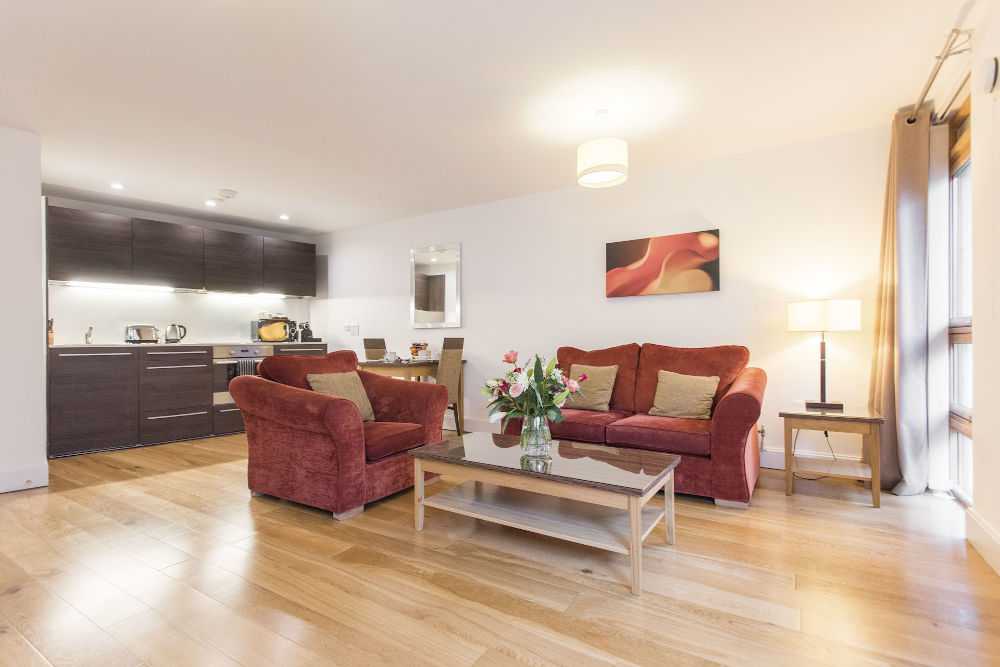
A separate utility area houses a washer/dryer, iron and ironing board. My airy apartment featured two bedrooms and two spacious bathrooms (one en-suite) with wall to wall tiling, one with a shower and the other with a bath and over-head shower and each with a generous selection of Paul Costelloe toiletries.
My ultra-comfortable double bed, swathed in crisp, white linens, resulted in a long leisurely lie-in and after a hearty home-cooked English breakfast I hopped on a local bus headed for the Clifton Suspension Bridge, Brunel’s first project at the age of only 23. The construction lasted for 33 years and the bridge opened in 1864, alas, it was five years after Brunel passed away.
Traversing the Avon Gorge and the River Avon the bridge is grade one listed and is among Bristol’s top tourist attractions. With a length of 412 metres and a width of 9.45 metres it is simply magnificent. After admiring the splendid, panoramic views from the bridge and my head still in the clouds I took another local bus and made my way to view yet another masterpiece designed by Brunel.
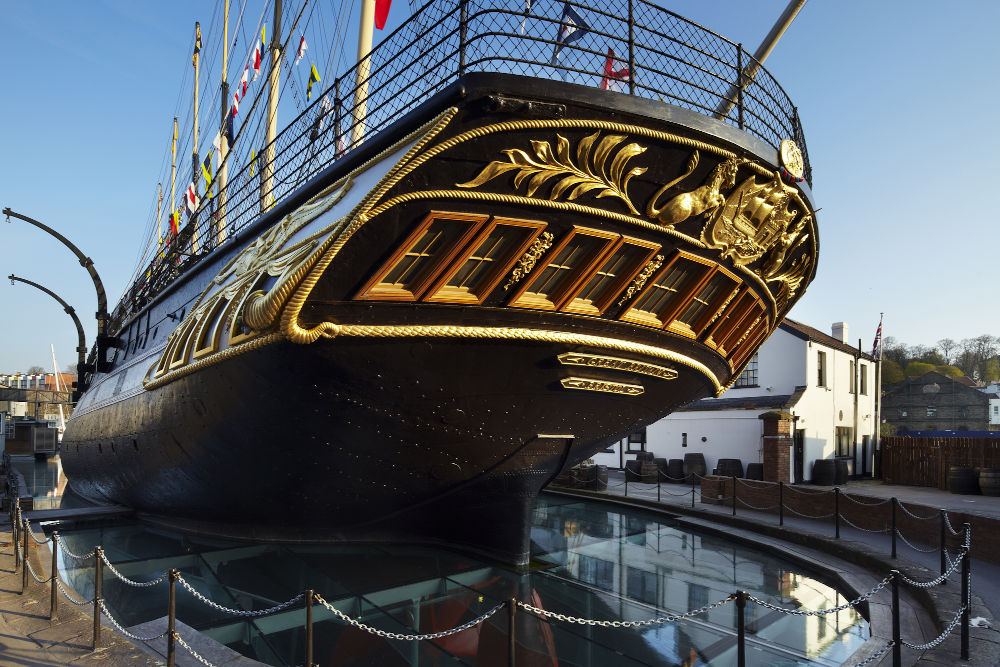
The sight of the SS Great Britain at the Great Western Dockyard is glorious. Slowly wandering along her decks, I reflected on her long and fascinating history. Launched in 1843, with Prince Albert in attendance, the SS Great Britain was the longest purpose-built passenger ship in the world combining an iron hull with screw propulsion. At 98 metres in length, a beam of 15.39 metres, a draught of 4.88 metres and a speed of 10 to 11 knots, the SS Great Britain was the talk of the nation. The three decks provided accommodation for 360 passengers and 120 crew members and featured a sumptuous saloon, ladies boudoirs, a dining saloon and a steward’s galley.
The vessel’s maiden voyage from Liverpool to New York in 1845 took only 14 days and 21 hours. In 1852 the ship was sold and adapted and set sail for Australia carrying up to 700 emigrants. After many years as a passenger ship the vessel was converted to carry cargo from England to the west coast of America.
In 1886 she suffered severe damage whilst sailing off Cape Horn and her captain steered her to the nearest port of refuge in the Falkland Islands where she was sold to the Falkland Islands Company. The ship’s working life ended in 1933 and she was abandoned until she was rescued in 1970 and returned to Bristol on a huge floating pontoon, pulled by tugs and having sailed around the world 32 times her arduous restoration began.
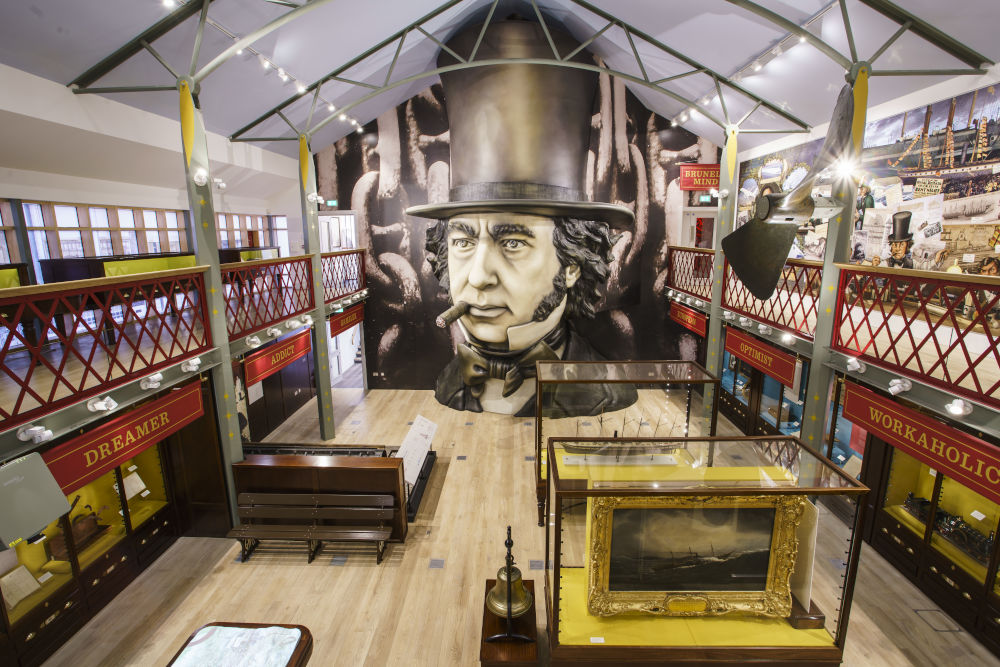
A wander around the ‘Being Brunel’ exhibition, adjacent to the SS Great Britain, is highly recommended and I was enthralled by many of Brunel’s possessions on display including a small scrap of paper with an impressive and detailed drawing of a rocking horse, which he created when he was only six years of age.
The time flew by relentlessly and there were still so many exhibits demanding my attention but my city-break was coming to an untimely end. I reluctantly left the Great Western Dockyard but my spirits were lifted when I reflected on the wise words of Isambard Kingdom Brunel ‘Nil desperandum has always been my motto’.
Factbox
Top Tip – Accommodation
Premier Suites, known for ‘bringing home a little closer’, offers the perfect alternative to a traditional hotel stay. For more information on the featured property and more around the UK and Europe, visit premiersuiteseurope.com.
Top Tip – Transport
Avoid the roads and travel in style and comfort with Great Western Railway direct from London Paddington to Bristol in 94 minutes. For more information visit gwr.com. Be sure of safe travel by wearing a face covering (unless exempt), maintaining social distance, washing hands throughout the journey, and using e tickets and contactless payment.
Top Tip – Attractions
For a fun-filled family day out Bristol Zoo is one of the city’s most popular attractions. Residents include gorillas, sloths, Asiatic lions, African penguins, meerkats and much more. For more information visit, bristolzoo.org.uk. And for more information on the SS Great Britain, visit ssgreatbritain.org.
Top Tip – Local transport
Purchase an ‘mTicket’ from the free First Bus app and get around with ease. Unlimited travel for 1, 7 or more consecutive days on First buses, including metrobus but excluding Airport Flyer services. For more information, visit firstgroup.com/bristol.












